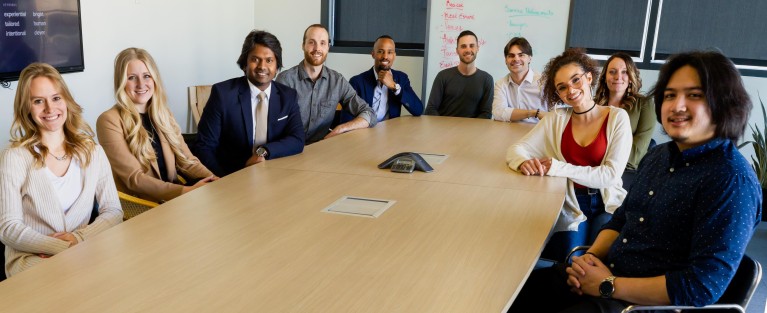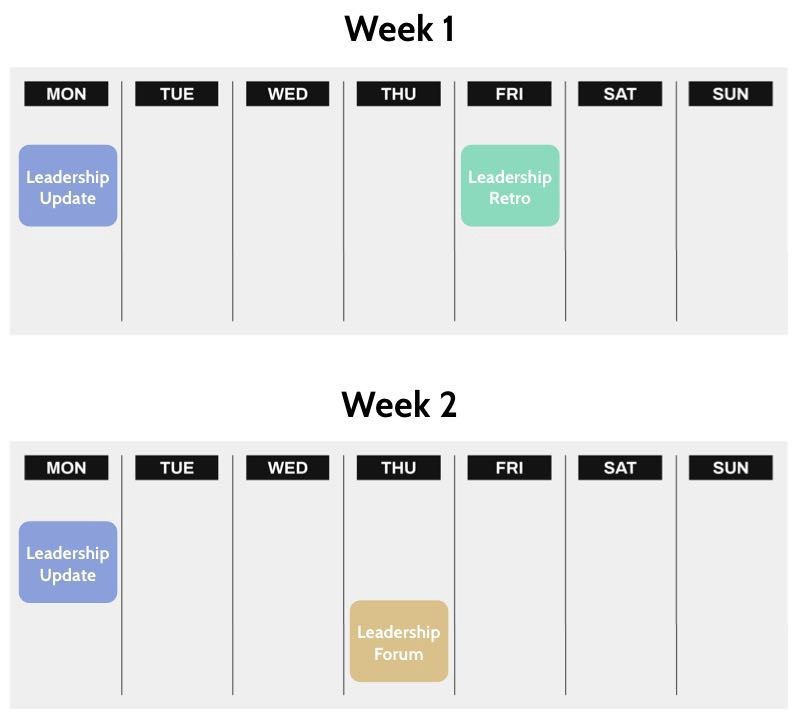A Simple Way to Make Leadership Team Meetings Easier

This piece was originally published on The Founder Coach. Dave Bailey coaches tech CEOs from Series A to pre-IPO. Find out more about his coaching programs and podcast.
What makes leadership team meetings trickier than they should be?
That’s a question I’ve been asking a lot of CEOs, both on my podcast and my coaching programs. Frequent answers include:
- A lack of alignment over the objective of the meeting
- A lack of clarity over people’s roles
- A lack of trust between members
However, even if these aren’t issues for you, some team meetings can still be difficult — and that’s down to how our brains work.
- Creative problem solving requires two very different cognitive processes: divergent and convergent thinking:
- Divergent thinking is the process of coming up with new ideas and possibilities.
- Convergent thinking is associated with analysis, judgement, and decision-making.
As the names suggest, these processes are complementary but oppose each other — and it’s hard to do both at the same time.
Think about a brainstorming session. People are thinking creatively to solve a particular problem, and ideas are being shared — this is divergent thought. Now imagine that someone is immediately judging those ideas and saying, ‘nope, we tried that and it doesn’t work’. Can you see how that might limit new ideas from emerging?
In contrast, think about a morning standup meeting where people are sharing their plans for the day to resolve any blockers — this is convergent thought. Now imagine someone is suggesting new ideas and mentioning new opportunities. Can you see how that might be disruptive for someone who really needs to crack on?
Different meetings need different cognitive modes, for example:
- Standups need convergent thinking
- Retrospectives need divergent thinking
- One-on-ones need divergent thinking, followed by convergent thinking
- Strategic planning need divergent thinking, followed by convergent thinking
On one hand, leadership team meetings can provide an opportunity to think creatively, voice new ideas, and investigate new possibilities. But on the other, they are a time to analyse progress, make decisions and align on a plan.
One reason why leadership team meetings underdeliver is they try to be divergent and convergent at the same time.
So here’s an alternative that you might experiment with. Once you’ve clarified the plan for the next cycle, try replacing your leadership meeting with separate meetings:
- Update (convergent thinking): you can review OKRs, analyse performance, and agree on next steps. This might be weekly.
- Retrospective (divergent thinking ending in convergence): you share what’s going well, what isn’t, and find an opportunity to improve. This might be bi-weekly.
- Forum (divergent thinking ending in convergence): you discuss open leadership topics as a group and define any action items. This might be bi-weekly, rotating with retrospectives.

If you feel like you’re trying to do too much in your team meetings, maybe you are. Splitting out the convergent and divergent processes might help you to foster the right mindset, stay connected, and find the convergence you’re looking for.
This piece was originally published on The Founder Coach. Dave Bailey coaches tech CEOs from Series A to pre-IPO. Find out more about his coaching programs and podcast.


